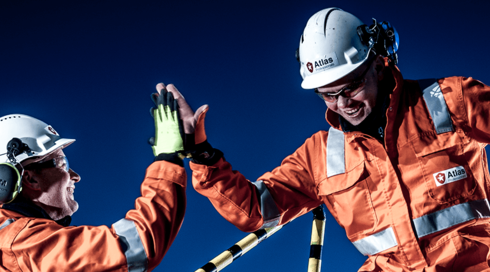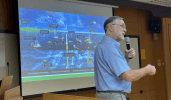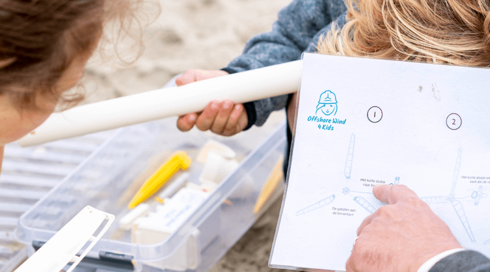3
What competences, skills, attitude and technical expertise are needed to start working in Renewables? Dingena Peddie-Theunisse, Organisational Development Manager at Atlas Professionals, shines light on the key factors transitioning workers should consider.
Many possibilities
Oil & Gas (O&G) and Renewables have an equal focus on safety. Next to this, motivation, professionalism, teamwork and eagerness are important in both industries. Thus far no differences. What makes working in O&G versus Renewables different, often depends on the different positions professionals are working in, in some areas complexity of work and in some cases team sizes.
As such, there is no one-size-fits all answer to transitioning to the Renewables industry, Dingena explains. “It is very much a case-by-case basis. There are many transition possibilities for offshore professionals. For example, for Marine Support professionals such as Riggers, ABs and Engineers, competence and technical expertise is very much the same. It is only the operational activities that are different.”
Yet for other positions, such as client representatives, the transition is much more based on the type of operation. “When looking at the heavy lift activities in offshore wind, these skills are transferrable. If you look more into the connection of the platform to the grid and station, you need different electrical and technical skills. It will take specific training and education as well as exposure to the job to acquire this specific industry expertise.”
For onshore functions like procurement and QHSE the same applies as for offshore support. “The competences are in many cases the same and it is the technical expertise that can be obtained,” Dingena says.
The next steps
More and more windfarms are being developed further offshore, an example is Doggerbank which is 125 km off the coast. Because of this, a shift in duration of rotations can be identified. Dingena notes that experienced O&G professionals will experience little change with extended rotations as they are used to be away from home for a longer period.
“Three to four weeks is quite standard in that industry, and many professionals are relatively comfortable with being away for such periods of time. If you look at for example generation Y, which is a good part of the intrinsically motivated professionals joining renewables, then we notice that up to two weeks is experienced as comfortable, but three to four weeks becomes long. It all depends on personal factors,” says Dingena.
With the season expanding more and more from February and / or March to September / October the season for professionals is also extending. Employers therefore request a longer time from professionals in Renewables as well. “This requires a certain resilience, flexibility and focus. Getting into the industry is in theory possible for almost all positions and in all phases of Renewables projects, and Atlas looks forward to support professionals and clients in facilitating these possibilities,” concludes Dingena.
If you are interested in making the transition to the Renewables industry, make sure to register your interest on workinginrenewables.com or contact any of our local teams who are looking forward to advise you on your next possible steps.
For a complete overview of all job opportunities in the renewables industry you can visit the job section of our website: jobs.atlasprofessionals.com.
.png)
.png)


